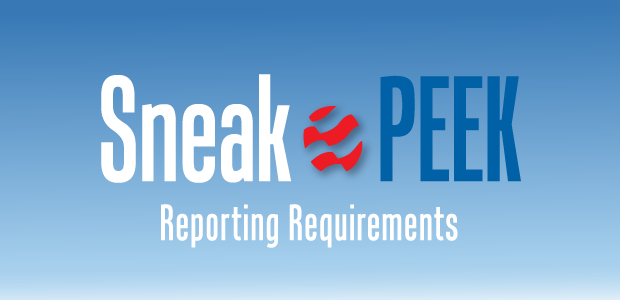
SEC’s Climate Rule Prompts Lawsuits
By Del Torkelson
WASHINGTON—Like other federal oil and gas regulations finalized this year, another rule Washington plans to implement has been scaled back from the draft version, but industry advocates insist it remains fundamentally flawed. In the case of the federal Securities and Exchange Commission’s greenhouse gas disclosure reporting requirements, critics say the Biden administration is again overreaching its statutory authority and further increasing companies’ regulatory compliance costs.To stop the new rule, oil and gas producer groups, state attorneys general and oil and gas service companies are suing SEC.
The Texas Alliance of Energy Producers and Domestic Energy Producers Alliance have teamed on one of the lawsuits and report that the individual and property rights nonprofit Pacific Legal Foundation has agreed to represent them. Meanwhile, the 10 states suing to stop the rule include three with substantial oil and gas activity: West Virginia, Texas and Alaska. The service providers filing suit are Liberty Energy Inc. and Nomad Proppant Services LLC.
The U.S. Court of Appeals for the Fifth Circuit in mid-May granted an emergency stay on the regulation in the Liberty and Nomad case, but because all the related cases were moved into the Eighth U.S. Circuit, the Fifth Circuit’s stay no longer applies. However, the SEC voluntarily stayed the rule on April 4. The commission explained that doing so will expedite judicial review by allowing the courts to focus on the lawsuits' merits rather than various parties' request for a stay. SEC added that "a stay avoids potential regulatory uncertainty if registrants were to become subject to the final rules’ requirements during the pendency of the challenges to their validity."
Press accounts point out that industry opponents also have filed suit against the regulation for falling short of its more ambitious draft version.
Still Thorny
According to the SEC, the commission’s final rules on the enhancement and standardization of climate-related disclosures were adopted only after the commission considered more than 24,000 comment letters, including more than 4,500 unique letters, submitted in response to the draft rules that were issued in March 2022.
The final version drops the earlier iteration’s “Scope 3” emissions reporting requirement that would have required companies to calculate their suppliers’ or customers’ indirect emissions, acknowledges Energy Workforce & Technology Council President Tim Tarpley. However, he says the final rule, which still entails requirements for direct “Scope 1” and indirect “Scope 2” emissions, remains deeply problematic.
“While the SEC did make some positive changes over the original proposed rule, such as removing the Scope 3 reporting requirement and improving the materiality standard, there are still significant concerns regarding the legality and scope of this rule,” Tarpley assesses. “The rule will put additional costs on reporting and data collection for public companies without necessarily leading to a reduction in emissions. Overall, we believe emissions reporting should be voluntary and driven by market forces, not a government mandate.”
The Texas Alliance deems the 886-page regulation a “nefarious” amendment to the Securities Act of 1933 and the Securities and Exchange Act of 1934, and notes that the commission’s three Democrats approved the rule in a party-line vote over their Republican colleagues. Removing the Scope 3 reporting requirements, the group warns, may not alleviate onerous value chain reporting obligations.
“The inclusion of ‘Scope 2’ emissions may still require public companies to report emissions data on their direct suppliers, partners, etc.,” the Alliance explains. “For this reason, the Alliance remains concerned that private independent oil and gas companies may still be subject to information requests or other burdensome criteria in order to continue to do business with those companies.”
DEPA makes a similar point, noting that the rule requires public companies to consider climate change risks—including “reputational risks” of associating with business partners who are viewed as contributing to climate change. Accordingly, DEPA reflects, “The rule not only imposes burdensome disclosure requirements on public companies, but it likely will prompt those companies to exert greater control over their partners’ business activities, or to disassociate with companies that are not doing enough to scale back greenhouse gas emissions.”
Such a sprawling requirement misconstrues the commission’s mission, says the counsel representing the Alliance and DEPA. “The SEC’s mandate is to ensure that companies disclose important information so that investors can evaluate the health of companies. That’s not a license to publicly shame companies for business practices they don’t like,” says Pacific Legal Foundation attorney Luke Wake. “Congress did not authorize the SEC to demand that companies report environmental or any other controversial issues completely unrelated to finance.”
DEPA President and Chief Executive Officer Jerry Simmons describes the lawsuit as a push back at regulatory overreach that dramatically exceeds the commission’s congressionally mandated purpose. “Congress authorized the SEC to protect investors from fraud, facilitate capital formation, and require only material disclosures related to investing,” he details. “The new rule does nothing to help investors get a greater return or make any difference in the climate. This is simply to force a political and ideological position onto U.S. companies.”
SEC Description
The SEC indicates the final rules require a registrant to disclose information on risks, including:
- Climate-related risks that have had or are reasonably likely to have a material impact on the registrant’s business strategy, results of operations or financial condition;
- The actual and potential material impacts of any identified climate-related risks on the registrant’s strategy, business model and outlook;
- If, as part of its strategy, a registrant has undertaken activities to mitigate or adapt to a material climate-related risk, a quantitative and qualitative description of material expenditures incurred and material impacts on financial estimates and assumptions that directly result from such mitigation or adaptation activities;
- Specified information regarding a registrant’s activities, if any, to mitigate or adapt to a material climate-related risk, including the use, if any, of transition plans, scenario analysis or internal carbon prices;
- Any oversight by its board of directors of climate-related risks and any role by management in assessing and managing the registrant’s material climate-related risks;
- Any processes the registrant has for identifying, assessing and managing material climate-related risks and, if the registrant is managing those risks, whether and how any such processes are integrated into the registrant’s overall risk management system or processes; and
- Information about a registrant’s climate-related targets or goals, if any, that have materially affected or are reasonably likely to materially affect the registrant’s business, results of operations, or financial condition, including expenditures and material impacts on financial estimates and assumptions as a direct result of the target or goal or actions taken to pursue such target or goal.
SEC adds that large accelerated filers (LAFs) and accelerated filers that are not otherwise exempted must provide information about material Scope 1 emissions and/or Scope 2 emissions. Those required to disclose Scope 1 and/or Scope 2 emissions must disclose an assurance report at the limited assurance level. For an LAF, following an additional transition period, the report must be at the reasonable assurance level.
In addition, SEC says the rule requires companies to share the following information in a note on financial statements:
- The capitalized costs, expenditures expensed, charges and losses incurred as a result of severe weather events and other natural conditions, such as hurricanes, tornadoes, flooding, drought, wildfires, extreme temperatures and sea level rise, subject to applicable 1% and de minimis disclosure thresholds;
- The capitalized costs, expenditures expensed and losses related to carbon offsets and renewable energy credits or certificates (RECs) if used as a material component of a registrant’s plans to achieve its disclosed climate-related targets or goals; and
- If the estimates and assumptions a registrant uses to produce the financial statements were materially impacted by risks and uncertainties associated with severe weather events and other natural conditions or any disclosed climate-related targets or transition plans, a qualitative description of how the development of such estimates and assumptions was impacted.
According to SEC Chairman Gary Gensler, the rules harmonize well with existing principles. “Our federal securities laws lay out a basic bargain. Investors get to decide which risks they want to take so long as companies raising money from the public make what President Franklin Roosevelt called ‘complete and truthful disclosure,’” he maintains. “Over the last 90 years, the SEC has updated, from time to time, the disclosure requirements underlying that basic bargain and, when necessary, provided guidance with respect to those disclosure requirements.
“These final rules build on past requirements by mandating material climate risk disclosures by public companies and in public offerings,” he continues. “The rules will provide investors with consistent, comparable and decision-useful information, and issuers with clear reporting requirements. Further, they will provide specificity on what companies must disclose, which will produce more useful information than what investors see today. They will also require that climate risk disclosures be included in a company’s SEC filings, such as annual reports and registration statements, rather than on company websites, which will help make them more reliable.”
Underlying Assumptions
Critics suggest the SEC is stacking the deck against fossil fuels in a way that adds compliance costs and liability risks while undermining fundamental rights.
“Companies will have to project hypothetical changes in government climate policies and market demand—no matter how improbable—and explain how they are managing such risks,” a Wall Street Journal editorial describes. “What about the risk that consumers don’t warm to electric vehicles that governments are forcing auto makers to produce, or that climate policies are scaled back as they have been in Europe? Companies won’t have to explain how they’re managing these more tangible risks.”
Furthermore, author and podcaster Alex Epstein suggests, the SEC requirements force company executives into repeating anti-fossil-fuel perspectives with which they may not agree. He reasons that the climate related risks a company is to report are not facts to which the company has unique access, but opinions about climate science and economics.
“What opinions are companies with no distinct knowledge of climate science/economics supposed to disclose to the government about these subjects?” Epstein poses. “The opinions of the government asking for them, of course—which in the case of this administration means: climate catastrophism.
“When a catastrophist administration forces companies to disclose climate opinions, voicing catastrophist opinions is safe and voicing non-catastrophist opinions is dangerous. Thus, ‘climate disclosure rules’ are actually anti-fossil-fuel propagandizing rules,” Epstein holds. “Climate disclosure rules that coerce companies to propagandize certain climate opinions are a complete violation of the First Amendment, and should be thrown out by judges on that basis alone.”
Editor's Note: This article has been updated since its print publication to note that SEC has voluntarily stayed the rule pending judicial review.
For other great articles about exploration, drilling, completions and production, subscribe to The American Oil & Gas Reporter and bookmark www.aogr.com.















